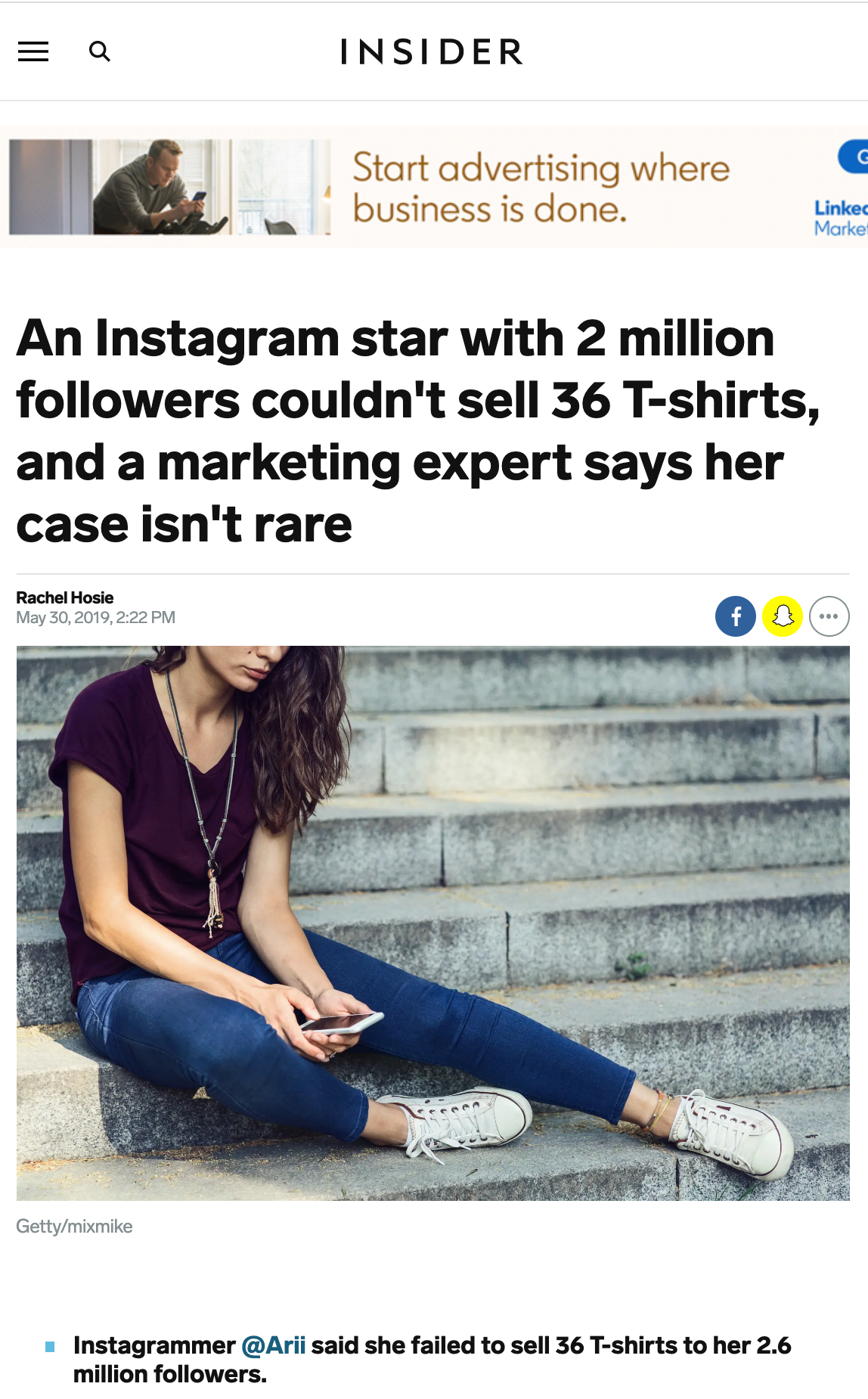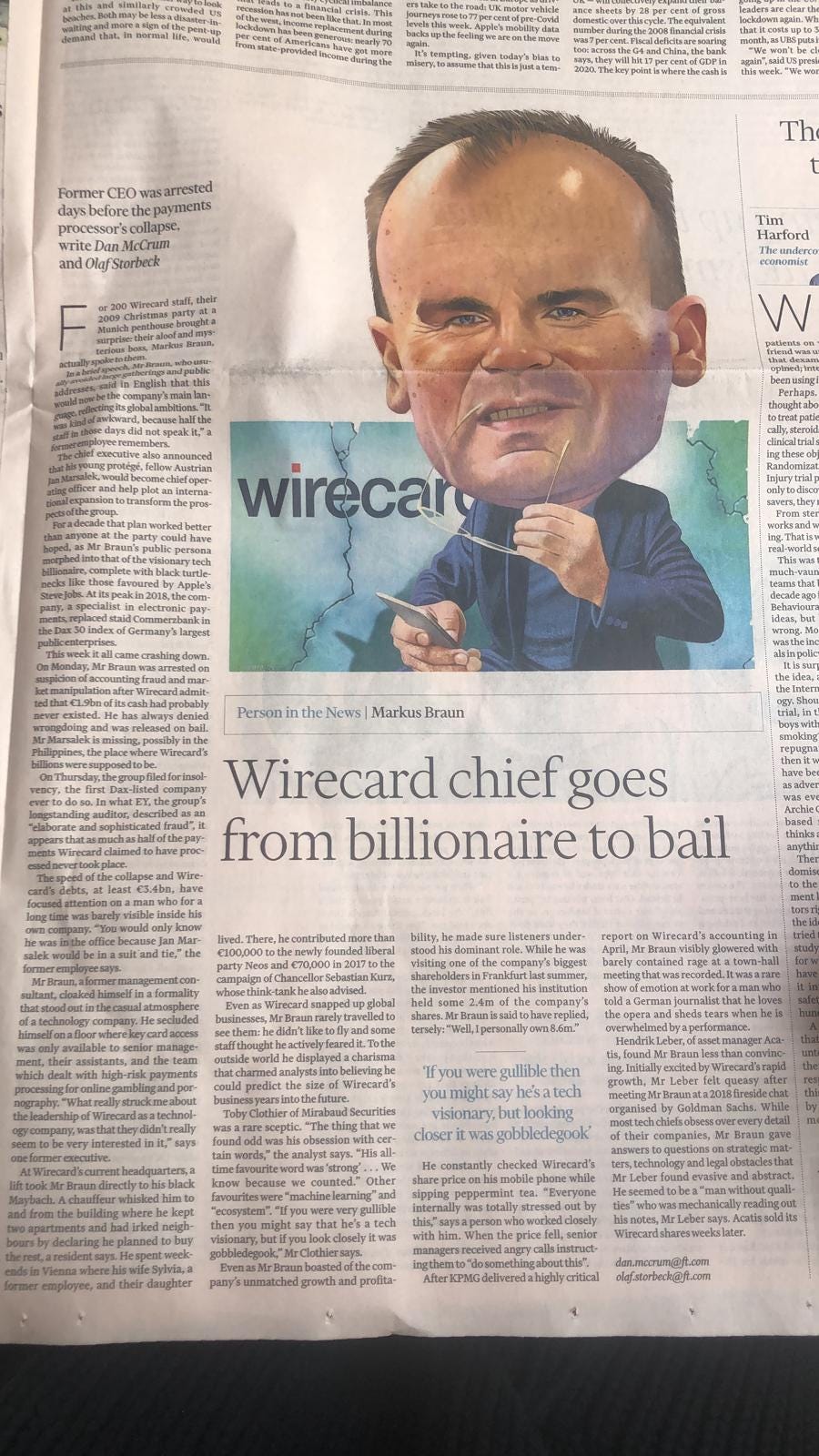
The unpaid labour of women is not new news. UN Women states:
From cooking and cleaning… to taking care of children and the elderly, women carry out at least two and a half times more unpaid household and care work than men. As a result, they have less time to engage in …paid labour. Women’s unpaid work …supports economies…yet, it is rarely recognized as “work”. Unpaid work is valued to be 10 and 39 per cent of the Gross Domestic Product and can contribute more to the economy than the manufacturing, commerce or transportation sectors.
As a progressive and independent woman, I’ve always assumed I had swerved the majority of activities that are defined as Unpaid Labour. I share all responsibility of my son 50/50 with his father, I have a local cleaner once a week, and on the days I’m not with my son, I mostly cook and care for myself. But the spate of female founder takedowns has led me to reflect on a form of start-up unpaid labour that women endure, and one that puts them at relative risk.
The female founders version of unpaid labor
Female founders and CEOs may believe their domestic support team have made them exempt from unpaid labour but I’d argue an additional gendered form of work they’ve subconsciously acquired is the role of brand ambassador, CMO, and company therapist.
However, in larger organizations (just as in higher income households) these roles would be split between several experts. Yet early-stage female founders are expected to show these sensitive and communal traits on top of learning how to be a CEO and build a company.
4/4 But perhaps we keep seeing women CEOs ripped apart because we expect more of them, and tolerate less from them.
— Sarah Guo ⚡️ Greylock (@saranormous) June 13, 2020
Brand ambassador vs CEO and the blending of public and private
Of all three areas I’ve listed (brand ambassador, CMO, and therapist) it’s the role of brand ambassador that can be especially contentious to women and put their careers and businesses at risk.

Playing the role of a brand ambassador to your startup means blending the private and public and blurring the lines between sharing what you’re building and sharing your very being.
Towards the middle of May, I made a decision to take a break from Instagram. Aside from commenting on the #blacklivesmatter movement I had neither posted nor lurked. Like genuinely not even looked at the app. I surprised myself.
Although my break was initially due to the phone addiction and TMI caused by lockdown, I soon realized I had more time for work, because I wasn’t posting. Getting off social became a no brainer.
While my identity is very much tied to my work, I have other private sellable visual assets completely unrelated to Beautystack; my taste, my food, hotels I stay at, my music, my cute as hell son, indeed my motherhood, who I’m dating, my fashion style, my book list, my holiday choices, my home and my interiors, my flowers, and my penchant for tiny handbags.
Being a brand ambassador means going public with these private assets in the hope that the halo effect of your private life “likes” will result in business “sales.”
BUT — I have a *feeling* that none of these private assets have a bearing on the success or failure of my business. Can Harvard do a case study on this hunch? I would love to see a study on unpaid labour of female founders versus male founders as research and data will unlock a new level of understanding that can help shape roles and responsibilities.
Not only do I believe that your social media presence and business success are completely uncorrelated, but they put your public persona and your business success at risk.

DYFJ — The time sink of unpaid labor
One of my favorite phrases is “Do Your Fucking Job” by Scott Belsky. If your job is to be CEO, the additional time spent being a brand ambassador literally detracts from your ability to be an effective CEO thus putting your business at risk.
Male founders and investors just don’t get this this time sink, but let me explain…
No one takes a selfie and posts it immediately. The “Insta” in Instagram is a lie. You take anything from 20–50 pictures (10 mins?) and then use some editing tools (5 mins) and then spend time constructing a caption (15 mins). Some people even send the caption to friends before posting, waiting for positive affirmation first. Then once posted, you lose micro minutes through the day where you constantly refresh your profile to get those dopamine hits of likes and comments. Not to mention that you’ll probably get distracted and start scrolling.
Even traditional media such as a magazine covers or interviews are a different level of time-sink for women. Male founders can rock up with their t-shirt and a £10 haircut, meanwhile we need a 2-hour session for hair, a manicure, and makeup. It wouldn’t fly for women to just turn up in “civilian clothes” and be photographed because the expectations are too high. That’s another half a day lost.
In short, being a brand ambassador is long.
Do you know what else we could be doing in those precious hours? Reading a book, speaking to a mentor, listening to a podcast, writing more, doing 1:1s with team, in fact anything to help us learn how to be a better CEO. Something that most people who run companies with several hundred employees get decades to learn, not months and years as is the compressed time of a VC backed company.
Being an influencer is a full-time job. It’s a fun job, just not mine.
Unpaid labour puts female founders and their businesses at risk
We know that inexperienced leadership leads to dysfunctional companies. By expecting female founders to take on the unpaid labour of brand ambassador you’re advocating for time spent not becoming a better CEO.
And when you’re a woman, the stakes are much higher. Male start-up CEOs could have the same level of inexperience and ineptitude, but somehow, they escape the same level of scrutiny or retribution. Why is this?
Cancel culture only really happens to public personas. Take away your brand ambassadorship and the mob has no access to you. A woman could be canceled for being an inexperienced CEO, whereas a man in the public arena, literally has to commit a crime before they’re canceled. And even then, they walk away with a lot.
Why is this a bigger problem?
The takedown of female founders stops other women wanting to start businesses. This is quite possibly the scariest and most disastrous result for tech and sets us back another 50 years. Even typing this sentence makes me wonder if this is some conspiracy to stop women starting companies.

If women know that by starting a company, they’ll be expected to become a public figure and thus be exposed to the risk of cancel culture, they may choose not to in the same way so few women run for office because of the fear of public witch hunt.
We must allow women to build companies, and fail quietly, with the same frequency and fervor as men.
But you’re an inspiration!
Social and community are important to women and we get a lot of fulfillment from seeing other women who we aspire to be. If female founders don’t play brand ambassadors, then the next generation can’t be what they can’t see.
But there’s a threshold that gets crossed when the pedestal your audience has put you on is no longer big enough to hold their expectations of you. And you topple and you fall.
How can we redefine what it means to be an inspirational woman? Am I an inspiration because of my life and taste, or because of the company I’ve built? If you answer both, know that focus is the key to anything. Pick one!
I flip flop between wanting to share my life so that other women can see that anything is achievable while also wanting to try and be a successful CEO so that in 10 years I’m still around to be a figure that inspires.
When you next see a woman who you admire, know that any public information she’s sharing with you will likely come at a cost that she will pay later down the line.
Social media as pure marketing channel
There are a bunch of reasons (some of which are valid) on why female founders end up taking on the unpaid labour of the brand ambassador but one of them is inbuilt into the platforms themselves.
A young woman starting out is led to believe that she cannot build her businesses without social media. They are the ultimate free distribution channel for our mission and products. We start off nice enough, with our business accounts and our personal accounts and somewhere along the lines these two start to weave themselves into each other and before you know it, you are your product and you’re the thing that is being sold.
I propose that if social media thinks we cannot build a business without it, then treat it as a pure marketing channel, not a personal diary. Use your audience as a pure distribution for your projects, not for your privacy.
The economics
The reason why female founders end up becoming brand ambassadors is because it’s a really low-cost way to get your business off the ground. Startup holy grail is spending as little money acquisition via Facebook ads as possible and instead get “free and organic” growth. But let’s be real — it’s not truly organic if I have to take several hours of my week to be a brand ambassador for my company is it? What you’re not paying Facebook in cash, you’re paying with in time.
It’s not free and it’s not organic if you’re relying on your CEO as an acquisition channels because of the time lost as explained previously.
Personally I think that this is a nonscalable acquisition channel which doesn’t actually help you understand your customer because you have no data or tracking on them. You just have some likes. WOM, referrals, content marketing etc– there are so many other ways of early adoption that don’t involve you seeing what I ate for breakfast.
So, if your company wants to wheel you out as brand ambassador should you ask for a pay rise to cover the unpaid labour (and outfits and beauty treatments) that you’re doing on top of your additional job?
Similarly, the valuation of your company should be higher if you arrive at your startup idea after already building your audience channels through your private persona. Especially if your team and investors expect you to utilize it.
iIn the same way that a second-time founder gets a higher valuation because their business is somewhat de-risked, a woman with an audience should also receive a higher valuation. This is because she has an initial audience which she will be expected her to promote the business through and she is de-risking the ability to get first 1000 users.
I’m also a total advocate for being a taskmaster start up CEO. I’ve worn all the hats and I’m learning which one fit best. I am also an office interior designer, DJ, chef – I get it! We do whatever it takes to win! It’s normal to have to do a little bit of everything in the early days. It’s just the damaging effects of this additional role can be permanent, as seen by the stepping down of female founders recently.
The new method
I’m going to try an experiment – In order to try and make a change and to protect my persona, my mental health, and my business, I will only be posting any news or updates that are work related on Instagram. Which is a shame, cos I got good taste and as a true Gemini, I love to share. I don’t know how long this will last and if it will indeed be bad for business but let’s try a new method, because the old one was not working for female founders.
My 38k followers are now a product distribution channel for my app, not my life. Obviously I can create interesting content and not a spam page but everything I post will be related to my work.
I totally understand if you unfollow me, but trust me, I’ll be more inspirational to you when Beautystack is a global business that powers millions of women’s economic independence. So let me get on with the role, not all the rest.
This article was originally published by Sharmadean Reid, the Founder and CEO of Beautystack. Her mission is to use technology to economically empower women in the beauty and wellness industries, globally.
Get the TNW newsletter
Get the most important tech news in your inbox each week.








